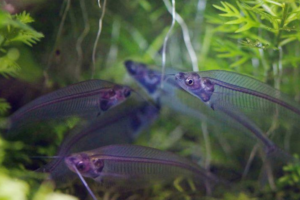Is your cat feeling sluggish, less playful than usual, or prone to vision problems? It could be a taurine deficiency. This vital amino acid acts like a superhero for your feline friend, supporting their heart, eyesight, brain function, and overall health. But don’t worry, boosting your cat’s taurine intake is easier than you think! This article dives deep into the world of taurine for cats, exploring its benefits, potential signs of deficiency, and the best dietary sources to keep your furry companion purring with happiness.
What is Taurine and Why is it Essential for Cats?
Unlike humans, who can synthesize taurine from other amino acids, cats are obligate carnivores, meaning they rely entirely on their diet to obtain this crucial nutrient. Taurine plays a vital role in numerous bodily functions, making it essential for optimal feline health.
Essential Functions of Taurine:
- Heart Health: Taurine strengthens the heart muscle, regulates blood pressure, and assists in maintaining healthy electrical signaling, preventing arrhythmias and other heart problems.
- Eyesight: Adequate taurine levels contribute to proper retinal function, preventing vision issues like cataracts and retinal degeneration.
- Digestion: Taurine aids in bile production, crucial for fat digestion and absorption of essential nutrients.
- Brain Function: This amino acid supports neurotransmitter production and nerve cell development, affecting learning, memory, and overall cognitive function.
- Immune System: Taurine strengthens the immune system, fighting off infections and promoting overall well-being.
- Reproduction: For female cats, taurine is essential for healthy fetal development and milk production.
Signs of Taurine Deficiency in Cats
While a high-quality commercial cat food typically provides adequate taurine, certain factors can put your feline friend at risk of deficiency. Be aware of these signs:
Vision problems: Cloudy eyes, squinting, difficulty navigating in low light.
- Digestive issues: Diarrhea, constipation, loss of appetite.
- Heart problems: Lethargy, weakness, difficulty breathing.
- Skin and coat problems: Dull fur, excessive shedding, skin infections.
- Weak immune system: Frequent infections, slow healing time.
- Behavioral changes: Depression, lethargy, anxiety, excessive vocalization.
Remember if you notice any of these signs, consult your veterinarian immediately. Early diagnosis and proper treatment can prevent serious health complications.
Ensuring Your Cat Gets Enough Taurine: Dietary Sources and Supplements
The good news is ensuring your cat gets enough taurine is relatively simple! Here’s how.
Dietary Sources of taurine for cat
- High-quality commercial cat food: Look for brands specifically formulated for complete and balanced nutrition, containing adequate taurine levels. AAFCO (Association of American Feed Control Officials) guidelines require a minimum of 0.1% taurine in dry cat food.
- Muscle meat: Taurine is naturally abundant in animal tissue. Raw or cooked muscle meat (chicken, beef, lamb) can be an excellent dietary source, but consult your veterinarian about proper portion sizes and potential risks.
- Organ meats: Liver, heart, and kidneys are particularly rich in taurine. However, moderation is key due to their high vitamin A content. Consult your vet for recommended amounts.
Supplements of taurine for cat
Veterinarians may recommend taurine supplements for cats with specific health conditions, dietary restrictions, or those fed homemade diets lacking sufficient taurine. Choose supplements formulated for cats and follow dosage instructions carefully to avoid overdose.
Types of Taurine supplements for cats:
- Powder: Highly customizable but requires mixing with food, which some cats might not like.
- Capsules/Tablets: Easy to administer but some cats might struggle swallowing them.
- Liquid drops: Easy to add to food, but dosage calculation might be trickier.
Considerations before using taurine supplements:
- Overdose risk: Excessive taurine intake can be harmful, causing digestive issues, electrolyte imbalances, and even heart problems. Always follow your vet’s prescribed dosage and never self-medicate your cat.
- Interactions with other medications: Taurine can interact with certain medications your cat might be taking, so inform your vet about all supplements and medications your cat is on.
- Underlying health issues: Some cases of taurine deficiency can be due to underlying health conditions, which need to be properly diagnosed and treated by a vet before resorting to supplementation.









